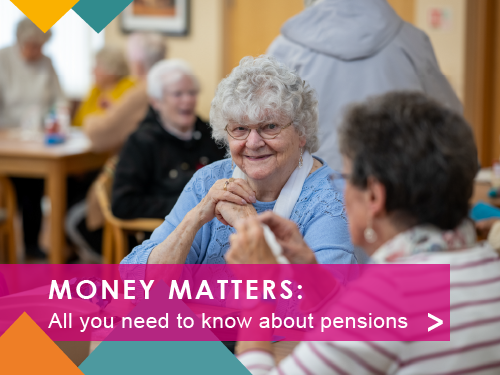Money Matters: All you need to know about pensions

In this week’s Money Matters column, the Wrekin Housing Group’s debt and energy manager Dan Bebbington explains how to start getting your pension in order for retirement.
Whether retirement is just around the corner or still some years away, it’s a good idea to be thinking about your pension. The decisions you make today will shape your financial comfort for decades to come.
The amount you’ll receive in retirement depends on a few key factors, including the type of pension scheme you’re in, how much you've contributed, and how long you've been saving.
The full State Pension currently pays up to £230.25 a week if you’ve made 35 years of National Insurance contributions. But for most people, a private pension is needed to top this up in order to maintain their current lifestyle.
If you’re employed, chances are you have a workplace pension. If you’re over 22 and earn more than £10,000 a year your employer should have enrolled you automatically. You’ll pay in a minimum of 5% of your earnings, and your employer must add at least 3%.
If you don’t meet the eligibility for auto-enrolment, you may still want consider opting in. Your employer can’t refuse, but they don’t have to contribute if you earn under £120 a week. You can also opt back in at any time if you’ve previously opted out.
There are two main times of private pension. First there’s defined contribution pension schemes, which see your pot build up through contributions from you and your employer. The money is invested, so the amount you get upon retirement depends on how much has been paid in and how well the investments have performed. You can choose to take the money as a lump sum, or in regular smaller payments, once you reach a specified age. You can take up to 25% of the pot as a lump sum tax-free.
The other main type is a defined benefit scheme, which is more common in public sector jobs such as the police, civil service, or the NHS. Your retirement income is based on your salary and years of service, and it usually pays out a guaranteed income for life.
If you're self-employed, you don’t benefit from auto-enrolment, but you can open a private pension. You’ll get tax relief on the money, so if you pay £80 a month the Government will top this up to £100. The tax relief is higher if you’re a higher rate taxpayer.
If you’re over 50 and have a defined contribution pension, Pension Wise can offer vital guidance on managing your pension(s). Appointments are available online or by phone, and can help you understand your options before you access your pension.
You can find out all you need to know about pensions at moneyhelper.org.uk. Wrekin Housing Group customers can also contact our Money Matters team if they need help with any aspect of their finances.
27th June 2025